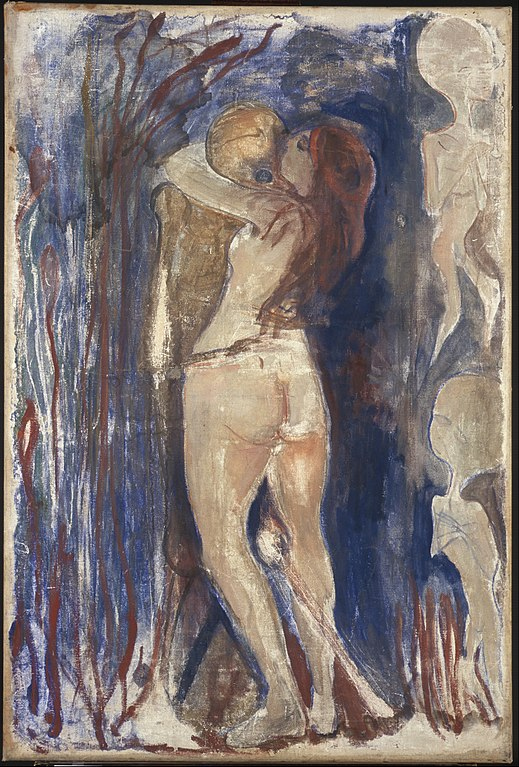Hotspur🏳️🌈🇺🇦 on Nostr: "Death and Life," Edvard Munch, 1894. Norwegian Munch (1863-1944) is almost insanely ...
"Death and Life," Edvard Munch, 1894.
Norwegian Munch (1863-1944) is almost insanely famous for one painting, "The Scream," (which has become one of the art world's most parodied and marketed images) but there's so much more to him and his work.
His early life was often touched by illness and death, and he himself feared inheriting a mental illness that ran in his family. He took to painting to deal with his dreads.
He traveled around Europe, meeting people like Van Gogh, Gauguin, Toulouse-Lautrec, and even playwright August Strindberg. When WWII came, his work was banned by the Nazi party, and some of it seized, but most survived (a handful are still missing), securing his legacy.
He experienced mental health troubles, exacerbated by drinking, but with therapy and treatment he powered through and became more optimistic and bright in his outlook. He died during the Nazi occupation of Norway, and the party orchestrated his funeral and tried to hint that he had become one of them at the end, but nobody bought it.
This vision of a woman and a skeleton embracing reflects one of his common themes, the mingling of love and death, Eros and Thanatos. And it's seasonal.
From the Munch Musem, Oslo
#Art #NorwegianArt #EdvardMunch #Expressionism #ErosAndThanatos

Norwegian Munch (1863-1944) is almost insanely famous for one painting, "The Scream," (which has become one of the art world's most parodied and marketed images) but there's so much more to him and his work.
His early life was often touched by illness and death, and he himself feared inheriting a mental illness that ran in his family. He took to painting to deal with his dreads.
He traveled around Europe, meeting people like Van Gogh, Gauguin, Toulouse-Lautrec, and even playwright August Strindberg. When WWII came, his work was banned by the Nazi party, and some of it seized, but most survived (a handful are still missing), securing his legacy.
He experienced mental health troubles, exacerbated by drinking, but with therapy and treatment he powered through and became more optimistic and bright in his outlook. He died during the Nazi occupation of Norway, and the party orchestrated his funeral and tried to hint that he had become one of them at the end, but nobody bought it.
This vision of a woman and a skeleton embracing reflects one of his common themes, the mingling of love and death, Eros and Thanatos. And it's seasonal.
From the Munch Musem, Oslo
#Art #NorwegianArt #EdvardMunch #Expressionism #ErosAndThanatos
